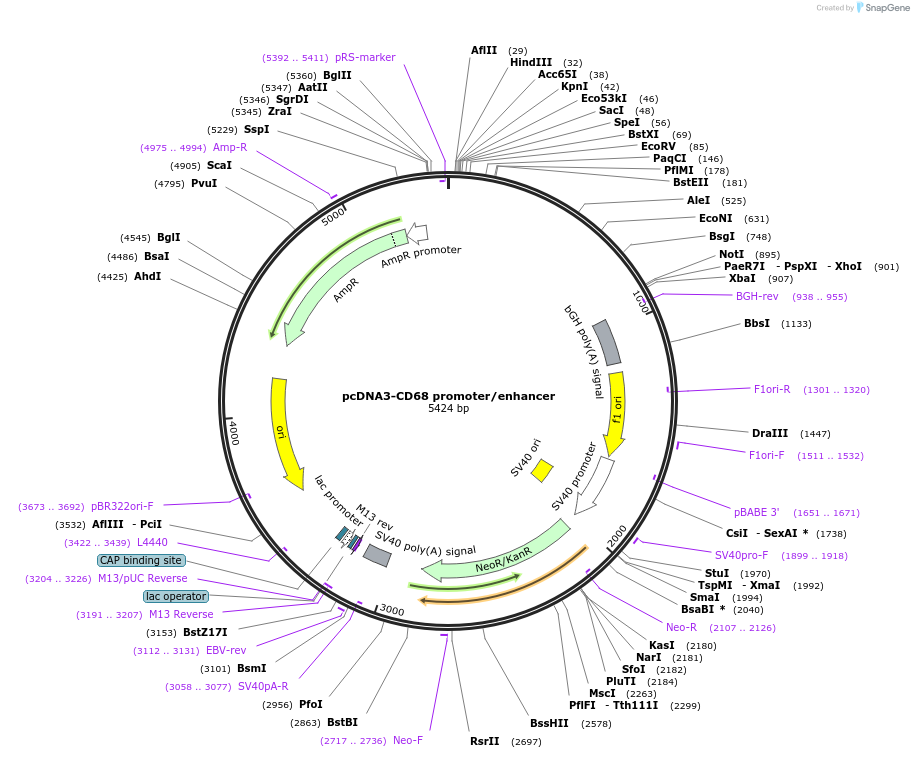-
Depositing Lab
-
Publication
-
Sequence Information
Ordering
| Item | Catalog # | Description | Quantity | Price (USD) | |
|---|---|---|---|---|---|
| Plasmid | 34837 | Standard format: Plasmid sent in bacteria as agar stab | 1 | $89 | |
Backbone
-
Vector backbonepcDNA3
-
Backbone manufacturerInvitrogen
-
Modifications to backboneCMV promoter has been removed
-
Vector typeMammalian Expression
-
Selectable markersNeomycin (select with G418)
Growth in Bacteria
-
Bacterial Resistance(s)Ampicillin, 100 μg/mL
-
Growth Temperature37°C
-
Growth Strain(s)DH5alpha
-
Copy numberHigh Copy
Gene/Insert
-
Gene/Insert nameCD68 promoter/enhancer -680/+140
-
SpeciesH. sapiens (human)
-
Insert Size (bp)820
-
Entrez GeneCD68 (a.k.a. GP110, LAMP4, SCARD1)
Cloning Information
- Cloning method Restriction Enzyme
- 5′ cloning site none (unknown if destroyed)
- 3′ cloning site none (unknown if destroyed)
- 5′ sequencing primer none
- 3′ sequencing primer BGH_rev
- (Common Sequencing Primers)
Resource Information
-
Articles Citing this Plasmid
Terms and Licenses
-
Academic/Nonprofit Terms
-
Industry Terms
- Not Available to Industry
Trademarks:
- Zeocin® is an InvivoGen trademark.
Depositor Comments
The CD68 promoter/enhancer in this construct consists of ~680bp 5' of the ATG and the 83bp first intron of human CD68.
Please note that Addgene's sequencing results found a single nucleotide deletion at bp# 440 when compared to the full plasmid sequence provided by the depositor. The depositing scientist states that it is probably a polymorphism in the promoter and is not a concern for the function of the plasmid.
These plasmids were created by your colleagues. Please acknowledge the Principal Investigator, cite the article in which the plasmids were described, and include Addgene in the Materials and Methods of your future publications.
-
For your Materials & Methods section:
pcDNA3-CD68 promoter/enhancer was a gift from Peter Murray (Addgene plasmid # 34837 ; http://n2t.net/addgene:34837 ; RRID:Addgene_34837) -
For your References section:
Autocrine deactivation of macrophages in transgenic mice constitutively overexpressing IL-10 under control of the human CD68 promoter. Lang R, Rutschman RL, Greaves DR, Murray PJ. J Immunol. 2002 Apr 1;168(7):3402-11. PubMed 11907098







